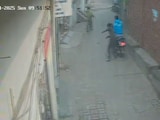Nipah virus is a zoonotic virus which is transmitted from animals to humans. Contaminated food and direct contact with an infected individual can lead to human-to-human spread. It can also cause illness in pigs. It was first identified during an outbreak in Malaysia in 1998-1999, the virus can spread to humans through direct contact with infected bats, pigs, or contaminated fruits, as well as through human-to-human transmission. Initial symptoms include fever, headache, and muscle pain, progressing to severe respiratory and neurological issues such as encephalitis. With a high mortality rate and no specific antiviral treatment or vaccine, prevention focuses on avoiding exposure to potential sources of infection and implementing public health measures. Read on as we list the signs, causes, treatment and prevention tips for the Nipah virus.
Symptoms of Nipah virus
Symptoms of Nipah virus can be classified into three categories:
- Asymptomatic infections
- Acute respiratory infection
- Fatal encephalitis
Initially, infected individuals experience fever, headaches, muscle pain, vomiting and sore throat. After these, the infection causes symptoms like dizziness, drowsiness, neurological issues and altered consciousness.
According to the World Health Organisation, some people can also experience severe respiratory issues and atypical pneumonia. In severe cases, encephalitis and seizures can occur, progressing to coma.
Incubation period
The onset of symptoms can start from 4 to 14 days after getting infected. In some cases, the incubation period can also be as long as 45 days.
Treatment for Nipah virus
As per WHO, currently, there is no vaccine against Nipah virus. There are also no specific drugs that are prescribed for treatment. Researchers are yet to develop a vaccine for Nipah virus.
Nipah virus prevention
During an outbreak, individuals should follow the following preventive steps:
- Avoid contact with sick pigs and bats
- Wash your hands frequently with soap and water
- Avoid foods and drinks that could be contaminated
- Avoid direct contact with infected individuals
- Any contact with blood and body fluids of an infected person should be strictly avoided
You must look out for the signs and talk to a healthcare professional at the earliest if you experience any symptoms.
Disclaimer: This content including advice provides generic information only. It is in no way a substitute for a qualified medical opinion. Always consult a specialist or your own doctor for more information. NDTV does not claim responsibility for this information.















